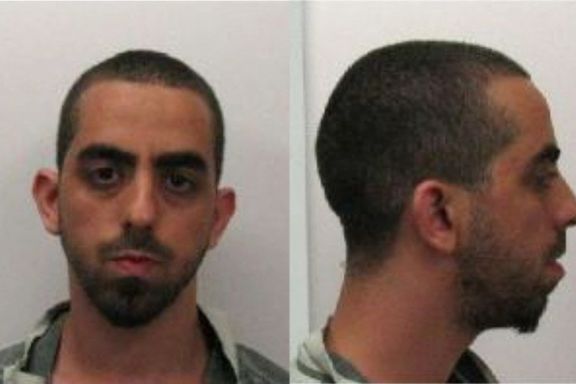DA Says Rushdie’s Attacker Could Stand Trial In Early 2024

Hadi Matar, the man who almost killed Salman Rushdie in New York State last year, might appear in court in early 2024, Iran International has learned.

Hadi Matar, the man who almost killed Salman Rushdie in New York State last year, might appear in court in early 2024, Iran International has learned.
Jason Schmidt, the district attorney overseeing the case, told Iran International that a “very important hearing” has been completed in favor of the prosecutor.
The defense wanted to “suppress certain statements that Mr. Matar made at the time that he was taken into custody by police,” said Schmidt. But the judge upheld the statements that the prosecutor wanted to “keep and introduce as evidence during the trial”.
Matar, 25, stabbed Rushdie in the neck and torso at a literary event in upstate New York last August. The renowned author had an Iranian bounty on his head since 1989, when he published his novel Satanic Verses, enraging many Muslims across the world. They deemed the book as insulting to the Prophet Mohammed.
Ayatollah Ruhollah Khomeini, Iran’s supreme leader at the time issued a religious edict that obliged Muslims to kill Rushdi, effectively forcing him to go into hiding. He had just begun relaxing his security measures when the attack happened.
“Matar had traveled from New Jersey,” Schmidt said, “so we do believe this is an attack that was pre-planned.”

Early police investigation suggested that Matar was sympathetic to Iran’s Islamic Republic’s Revolutionary Guards. On his Facebook, he had photos of Supreme Leader Ali Khamenei and Qassem Soleimani, the IRGC general killed in a US drone strike in 2020.
At the time, Vice quoted European and Middle Eastern intelligence sources who said Matar had been in contact with some elements within the IRGC. The Islamic Republic officials have denied direct involvement but expressed support for the attack.
It’s been suggested also that Matar could have been influenced by the Iran-backed militant Hezbollah group during his time in Lebanon.
Commenting on potential links between Matar, Hezbollah in Lebanon, and the regime in Iran, district attorney Schmidt said, “there is a concurrent federal investigation… they may be looking at something on an international or national scale… that investigation could go beyond Matar and to third persons or even the Iranian government.”
The officials in Tehran wasted no time in celebrating the attack and extending congratulations to the attacker. It was also announced that he would be given 1,000 square meters of fertile farmland in Iran.
Mohammad Ismail Zarei who heads the organization that was established to implement the original edict and kill Salman Rushdie thanked Matar “for his brave action in carrying out the historic fatwa of Imam Khomeini.”
Matar did not deny his feelings either.
Shortly after his arrest, Matar gave a video interview to the New York Post, in which he praised Khomeini and condemned Rushdie as “someone who attacked Islam. ”But he hasn’t revealed much beyond this.
Schmidt explained: “when the attack occurred and Mr. Matar was taken into custody, there were some efforts to interview him to develop as much information as possible surrounding the attack. But that interview was cut short when Mr. Matar asserted his right to counsel.”
Matar is charged in the State of New York with attempted murder of second degree and assault of second degree (related to injuries sustained by another man present at the scene).
If found guilty, he could face up to 25 years in prison.